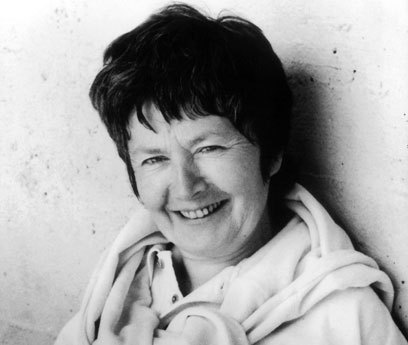Luce Irigaray
DOI:
https://doi.org/10.31273/eirj.v1i1.70Abstract
Luce Irigaray is the Director of Research in Philosophy at the Centre National de la Recherche Scientifique de Paris. A doctor in linguistics and philosophy, a leading cultural theorist, an experienced therapist and author of more than 30 books on a range of subjects, Luce Irigaray truly is an interdisciplinary thinker. Thanks to support from the French Embassy in London, the Institute of Advanced Study, the Centre for the Study of Women and Gender, the Society for Women in Philosophy (SWIP), and the Departments of English and History, she visited the University of Warwick on 7 June 2013. A lecture and roundtable discussion was attended by students and academics from many different departments, forming questions and ideas across and beyond disciplines. The day concluded with a reception and animated conversations that carried on until late in the evening. Before leaving Warwick, Luce Irigaray kindly agreed to give an exclusive interview to ‘Exchanges’, some of which is included in this discussion of her ideas.
Downloads
References
Grosz, E. (1994) ‘Sexual Difference and the Problem of Essentialism’, in The essential difference, N. Schor and E. Weed (eds) Bloomington ; Indianapolis: Indiana University Press, pp. 82-97
Irigaray, L. (2008) Conversations, London: Continuum
Irigaray, L. and Guynn, (1995) ‘The Question of the Other’, Yale French Studies, 87, pp. 7-19
Schor, N. (1994) “This Essentialism Which Is Not One: Coming to Grips with Irigaray.” In Engaging with Irigaray: Feminist Philosophy and Modern European Thought, C. Burke, N. Schor, and M. Whitford (eds), New York, NY: Columbia University Press, pp. 57-78.

Additional Files
Published
Issue
Section
License
Authors who publish with this journal agree to the following terms:
Authors retain copyright and grant the journal right of first publication with the work simultaneously licensed under a Creative Commons Attribution License (CC-BY), which permits use and redistribution of the work provided that the original author and source are credited, a link to the license is included, and an indication of changes which were made. Third-party users may not apply legal terms or technological measures to the published article which legally restrict others from doing anything the license permits.
If accepted for publication authors’ work will be made open access and distributed under a Creative Commons Attribution (CC-BY) license unless previously agreed with Exchanges’ Editor-in-Chief prior to submission.
Authors are able to enter into separate, additional contractual arrangements for the non-exclusive distribution of the journal's published version of the work (e.g., post it to an institutional repository or publish it in a book), with an acknowledgement of its initial publication in this journal.
Authors are permitted and encouraged to post their work online (e.g., in institutional repositories or on their website) prior to and during the submission process, as it can lead to productive exchanges, as well as earlier and greater citation of published work. (see: The Effect of Open Access)
